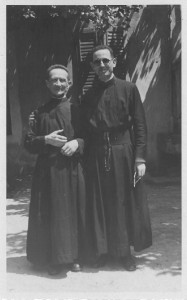 ‘The assistance provided to the needs and the physical and spiritual sufferings of the sick seeks to be an extension of the inexhaustible mercy and patience and goodness of Jesus the Lord who bent down to all the miseries of humanity wounded by sin and through care for bodies in pain gave peace and salvation to souls. Your presence in hospitals, in nursing homes, at the bedside of the poor and the needy should therefore be a constant irradiation of the charity of Christ, the lived apologetics of delicacy, disinterestedness and heroism, if this is necessary, of those who have made the example of Jesus the Lord the only reason for their entire lives, the measure of a measureless need, the secret spur of an impetus destined to come to an end only with death’ (Insegnamenti di Paolo VI, vol. III, Tip. Pol. Vat., 1965, pp. 289-290).
‘The assistance provided to the needs and the physical and spiritual sufferings of the sick seeks to be an extension of the inexhaustible mercy and patience and goodness of Jesus the Lord who bent down to all the miseries of humanity wounded by sin and through care for bodies in pain gave peace and salvation to souls. Your presence in hospitals, in nursing homes, at the bedside of the poor and the needy should therefore be a constant irradiation of the charity of Christ, the lived apologetics of delicacy, disinterestedness and heroism, if this is necessary, of those who have made the example of Jesus the Lord the only reason for their entire lives, the measure of a measureless need, the secret spur of an impetus destined to come to an end only with death’ (Insegnamenti di Paolo VI, vol. III, Tip. Pol. Vat., 1965, pp. 289-290).
These words that Paul VI addressed to the Regular Clerics Ministers of the sick seem to be a compendium of the resolutions and the apostolate of the Servant of God Enrico Rebuschini who faithfully followed the example and the teaching of Christ and consecrated his life to service to the sick and sinners, to whom with humility and charity he widely distributed the gifts of Redemption, offering to them the experience of the mercy of God and that sweetness of the Gospel that we all need.
This worthy follower of St. Camillus was born in Gravedona on 28 April 1860, within the boundaries of the diocese of Como, to a family that was rich and had solid moral and religious principles. His parents, Domenico Rebuschini and Sofia Polti, gave him an excellent upbringing which as a child he meekly and advantageously embraced. For this reason, he always journeyed within a context of faith, demonstrating a clear propensity for prayer, for solitude, for familiarity with God and for purity in his conduct. After finishing his studies at school, he obtained a diploma as an accountant, in this way meeting the wishes of his father who wanted him to be a capable industrialist. But Enrico preferred to consecrate himself completely to God and His kingdom, being attracted by higher values. He never abandoned this wish, either during his military service or during the period when he was employed in the silk industry in Cremi or later in the administration of the city hospital of Como. In this last task he gave further signs of care and concern for the sick.
After the opposition of his father had been overcome and the consent of the diocesan bishop had been obtained, in 1884 he entered the Lombard seminary in Rome and enrolled in the Pontifical Gregorian University. But in 1886 he had to return to his family for health reasons. After achieving a better idea of the will of God, the following year he asked to enter the Order of the Regular Clerics Ministers of the Sick and this was granted to him. While he was in the novitiate in Verona he was ordained a priest by Giuseppe Sarto, the Bishop of Mantua, on 14 April 1889. On 8 December of that year he took his simple vows and two years later his perpetual vows. His superiors, who greatly esteemed him because of his virtues, immediately entrusted him with the positions of vice-master of novices and theology teacher in the house for formation. A short time afterwards he was appointed chaplain of the military hospital and of the city hospital in Verona, where he shone for his zeal, his charity and his humanity in caring for the sick, in whom he saw the crucified Christ; he visited them, he comforted them, and he led them to God with goodness, sweetness and above all words of faith and hope and with the sacrament of penitence. He offered up prayers for their conversion and in difficult cases he did not hesitate to apply harsh penitence. From 1899 onwards he was in the city of Cremona, acting as the chaplain of the Daughters of St. Camilllus and the financial administrator of his religious house and the nursing home. For ten years he was also the Superior of the community which he managed more with the example of holiness than through the exercise of authority.
At the same time he dedicated himself with his usual fervour to spiritual care for the sick and the ministry of confessions. Although he was modest by character, sparing in words and particularly shy, he carried out his priestly duties with dignity, diligence and perseverance. With his heart fixed on eternity in God, he achieved constant advances in following Christ. In a healthy way he thus shook his Order and the city of Cremona. A true man of God, he always lived in the light of faith, hope and charity. He firmly adhered to the revelation and the magisterium of the Church. He cultivated a close communion with God through due celebration of the divine mysteries and the Liturgy of Hours, prayer, and meditation on the eternal virtues.
He dedicated a great deal of time to adoration of the Eucharist and cultivated a singular devotion to the Most Holy Trinity, the Passion of Christ and Our Lady. Filled with love of God, he at all times obeyed His will and His laws; he worked humbly for His glory and His kingdom, bearing witness to the Gospel and serving people with lovingness, with zeal and with prudence. He poured the charity of Christ on his brethren, the sick, sinners and all those whom he encountered during the day. He was merciful towards everyone, even towards those who abused his trust and his goodness. Faithful to his religious consecration, he diligently observed his vows and rules, denied himself, dominated his senses and the affections of his spirit, and was a stranger to the vain things of this world. He rejected all sin and vice. He in an excellent way exercised justice towards God and his neighbour and performed the post of financial administrator with honestly, integrity and accuracy, striving to be highly useful to his religious brothers and the patients of the nursing home. On more than one occasion during his life he bore the cross of greater interior suffering, which did not, however, impede him from advancing in the ways of the Lord and to honour in an exemplary way his priestly duties. Struck down by pneumonia, he achieved the eternal prize that he had always wished for on 10 May 1938.



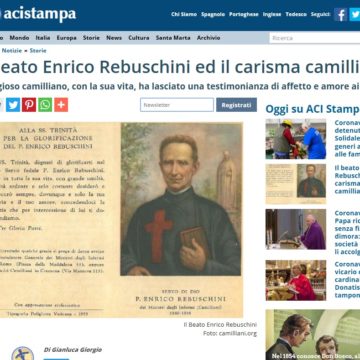
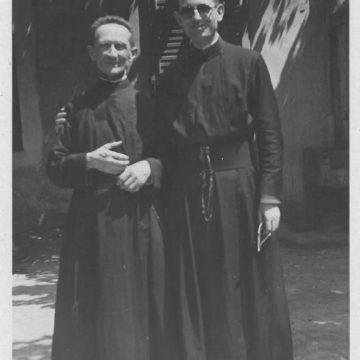
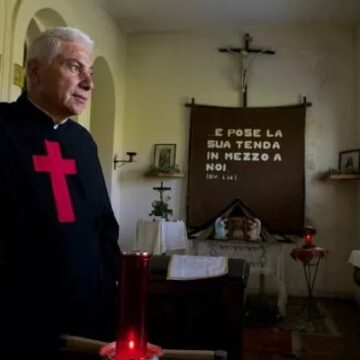

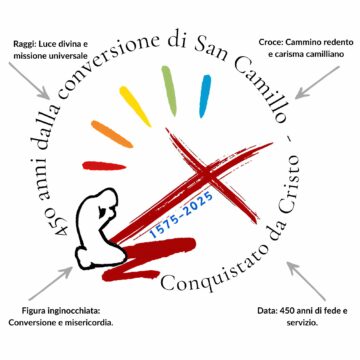


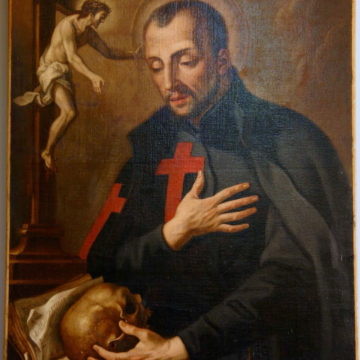


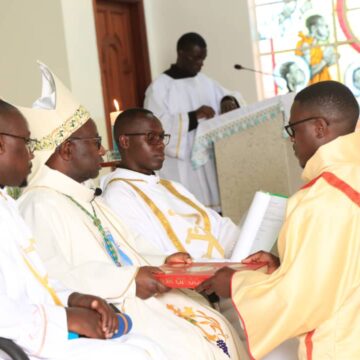
Camillians on Facebook
Camillians on Twitter
Camillians on Instagram